Mar 01
"It may be well to state here that, having been reared by a kind aunt in Pennsylvania, whose usefulness with the sick was continually sought, I early conceived a liking for, and sought every opportunity to relieve the sufferings of others. Later in life I devoted my time, when best I could, to nursing as a business, serving under different doctors for a period of eight years (from 1852 to 1860); most of the time at my adopted home in Charlestown, Middlesex County, Massachusetts. From these doctors I received letters commending me to the faculty of the New England Female Medical College, whence, four years afterward, I received the degree of doctress of medicine."

Mar 01
No State shall engage in any war without the consent of the United States in Congress assembled, unless such State be actually invaded by enemies.
Mar 02
"Too oft, we own, the stage with dangerous art
In wanton scenes, has play'd a Syren's part,
Yet if the Muse, unfaithful to her trust,
Has sometimes stray'd from what was pure and just;
Has she not oft, with awful virtue's rage.
Struck home at vice, and nobly trod the stage?
Then as you'd treat a favourite fair's mistake,
Pray spare her foibles for her virtues stake:
And whilst her chastest scenes are made appear,
(For none but such will find admittance here)
The muse's friends, we hope, will join the cause,
And crown our best endeavours with applause."Image by Charles Willson Peale, courtesy of the Colonial Williamsburg Foundation: In 1771, Charles Willson Peale painted this portrait of actress Nancy Hallam, dressed in her costume as the boy Fidele in Shakespeare's Cymbeline. Hallam was a cousin of Lewis Hallam the younger, who in 1752 had brought the first theater company from England to the colonies. Based in New York, Hallam's company also performed in Philadelphia in the 1750s and 1760s.

Mar 02
Mar 03
"The most interesting thing about a postage stamp is the persistence with which it sticks to its job."

Mar 04
"The preservation of the sacred fire of liberty, and the destiny of the republican model of government, are justly considered deeply, perhaps as finally, staked on the experiment entrusted to the hands of the American people."
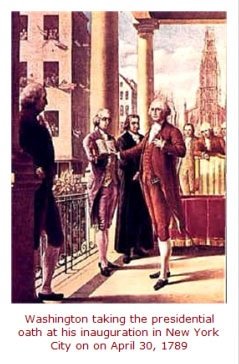
Mar 04
"Those who don't know how to weep with their whole heart, don't know how to laugh either."

Mar 05
"Our country is in danger, but not to be despaired of. Our enemies are numerous and powerful; but we have many friends, determining to be free, and heaven and earth will aid the resolution. On you depend the fortunes of America. You are to decide the important question, on which rest the happiness and liberty of millions yet unborn. Act worthy of yourselves."

Mar 06
"Deep into that darkness peering, long I stood there, wondering, fearing, doubting, dreaming dreams no mortal ever dared to dream before."
"The boundaries which divide Life from Death are at best shadowy and vague. Who shall say where the one ends, and where the other begins?"

Mar 07
"On Tuesday, June 24, Mrs. Andrew Carnegie died at her home in New York City, in her eighty-ninth year. This brought to an end a long and exceptional life of great distinction and fine living. Although since the death of her husband in 1919 Mrs. Carnegie had seldom visited Pittsburgh, she was known to many here for her high purpose, kindliness, and nobility of character.
"Notwithstanding the great wealth and prominence of her husband, she played her individual part in all his philanthropies as a counselor and an enthusiastic co-planner in his hopes for the betterment of the human race. She was self-effacing in her own benefactions, which were many, but fully lived up to what she felt to be the responsibilities placed upon her by her opportunities for service. A true lady in the old fashioned sense of the word, she was most gracious and kindly to all with whom she came in contact and could well be taken as an outstanding example of American womanhood."
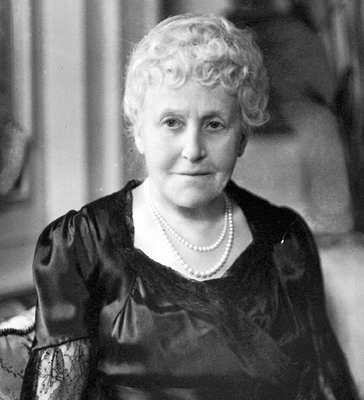
Mar 08
"As to the presidency, the two happiest days of my life were those of my entrance upon the office and my surrender of it."

Mar 09
"A little flattery will support a man through great fatigue."
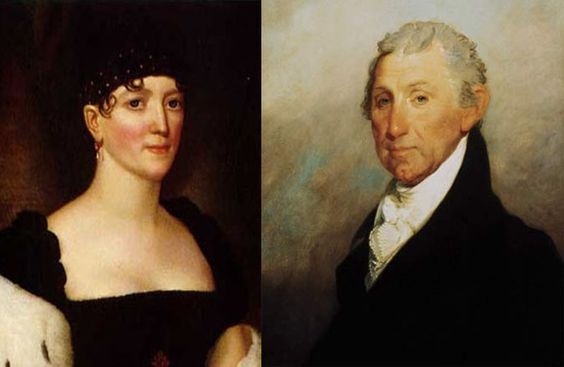
Mar 10
"Man is not the only animal who labors; but he is the only one who improves his workmanship. The patent laws have secured to the inventor, for a limited time, the exclusive use of his invention; and thereby added the fuel of interest to the fire of genius, in the discovery and production of new and useful things."

Mar 11
"Life is not easy for any of us. But what of that? We must have perseverance and above all confidence in ourselves. We must believe that we are gifted for something and that this thing must be attained."

Mar 12
"Chicago is constantly auditioning for the world, determined that one day, on the streets of Barcelona, in Berlin's cabarets, in the coffee shops of Istanbul, people will know and love us in our multidimensional glory, dream of us the way they dream of San Francisco and New York."
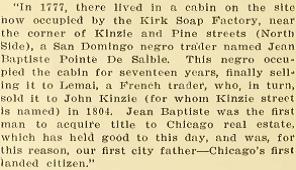
Mar 13
Old Uncle Sam come there to change, some pancakes and some onions, for 'lasses cakes, to carry home, to give his wife and young ones.

Mar 14
"One of my primary objects is to form the tools so the tools themselves shall fashion the work and give to every part its just proportion."

Mar 15
“Bread costs ten cents a pound and is made of Indian corn meal; eggs from fifty cents a dozen; milk fourteen cents a gallon, We eat meat, fish, peas, and wild beans and many kinds of fruits and vegetables, such as pineapple, which is the most excellent of all fruits; watermelon, sweet potatoes; pippins . . . figs, bananas, pecans, cashews.
"In fact, we live on wild beef, deer, swans, geese and wild turkeys, hares, hens, ducks, teals, pheasants, partridges, quails and other fowl and game of different kinds. The rivers are teeming with enormous fish, especially turbot which is an excellent fish, ray, carp, and many other fishes unknown in France. They make much use of chocolate with milk and coffee. A lady of the country has given good provision of it. We drink it every day. During Lent, meat is allowed three times a week, and during the year, meat is allowed on Saturday as in the Island of St. Domingo.
"We accustom ourselves wonderfully well to the wild food of this country. We eat bread which is half rice and half flour. There is here a wild grape larger than the French grape, but it is not in clusters. It is served in a dish like plums. What is eaten most and is most common is rice cooked with milk. The people of Louisiana find very good a food called 'sagamite,' which is made of Indian corn crushed in a mortar, then boiled in water, and eaten with butter or cream."

Mar 16
No people in the world profess so high a respect for liberty and equality as the people of the United States, and yet no people hold so many slaves, or make such great distinctions between man and man."
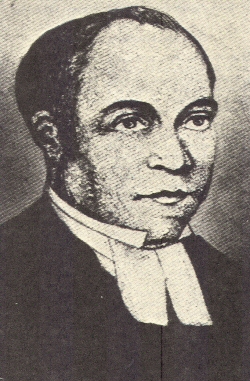
Mar 17
"The general congratulates the army on the very interesting proceedings of the parliament of Ireland and the inhabitants of that country which have been lately communicated; not only as they appear calculated to remove those heavy and tyrannical oppressions on their trade but to restore to a brave and generous people their ancient rights and freedom and by their operations to promote the cause of America.
"Desirous of impressing upon the minds of the army, transactions so important in their nature, the general directs that all fatigue and working parties cease for tomorrow the seventeenth, a day held in particular regard by the people of the nation. At the same time that he orders this, he persuades himself that the celebration of the day will not be attended with the least rioting or disorder, the officers to be at their quarters in camp and the troops of the state line to keep within their own encampment."

Mar 18
"A man who has never gone to school may steal from a freight car; but if he has a university education, he may steal the whole railroad."
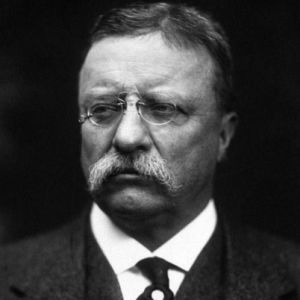
Mar 19
"Old-fashioned ways which no longer apply to changed conditions are a snare in which the feet of women have always become readily entangled."

Mar 20
"All my life I wanted to be a bank robber. Carry a gun and wear a mask. Now that it's happened I guess I'm just about the best bank robber they ever had. And I sure am happy."

Mar 21
Mar 21
"If the imagination could describe what our senses enable us to feel from sight and touch, reason itself would recoil in horror, and it is no easy matter to say whether the sight of an entire city in flames was more horrible to behold than the suffering and pitiable condition in which everyone was involved. Mothers, in search of a sanctuary or refuge for their little ones, and abandoning — their earthly goods to the greed of the relentless enemy, would retire to out-of-the-way places rather than be witnesses of their utter ruin.
"Fathers and husbands were busy in saving whatever objects the rapidly spreading flames would permit them to bear off, while the general bewilderment was such as to prevent them from finding even for these a place of security. The obscurity of the night coming on threw its mantle for a while over the saddening spectacle; but more horrible still was the sight, when day began to dawn, of entire families pouring forth into the public highways, yielding to their lamentations and despair, who, but a few hours before, had been basking in the enjoyment of more than the ordinary comforts of life.
"The tears, the heartbreaking sobs and the pallid faces of the wretched people mirrored the dire fatality that had overcome a city, now in ruins, transformed within the space of five hours into an arid and fearful, desert. Such was the sad ending of a work of death, the result of seventy years of industry."

Mar 22
Martha Washington often recalled the two saddest days of her life. The first was December 14, 1799, when her husband died. The second was in January 1801 when Thomas Jefferson visited Mount Vernon.
As a close friend explained, "She assured a party of gentlemen, of which I was one ... that next to the loss of her husband," Jefferson's visit was the "most painful occurrence of her life."
She had come to dislike Jefferson for his frequent attacks on President George Washington as a monarchist bent on destroying the rule of the people and a senile follower of the policies of Alexander Hamilton.
Jefferson refused to attend memorial services for the president, saying in private that the "republican spirit" in the nation might revive now that Washington was dead and the Federalists could no longer hide behind his heroic image.

Mar 23
"I certainly feel that the time is not far distant when a knowledge of the principles of diet will be an essential part of one's education. Then mankind will eat to live, be able to do better mental and physical work and disease will be less frequent."

Mar 24
"That which is wrong under one circumstance, may be and often is, right under another. God said thou shalt not kill—at another time he said thou shalt utterly destroy. This is the principle on which the government of heaven is conducted — by revelation adapted to the circumstances in which the elders of the kingdom are placed. Whatever God requires is right ... even things which may be considered abominable to all those who do not understand the order of heaven."

Mar 25
"But for you there would have been no Battle of Bull Run."
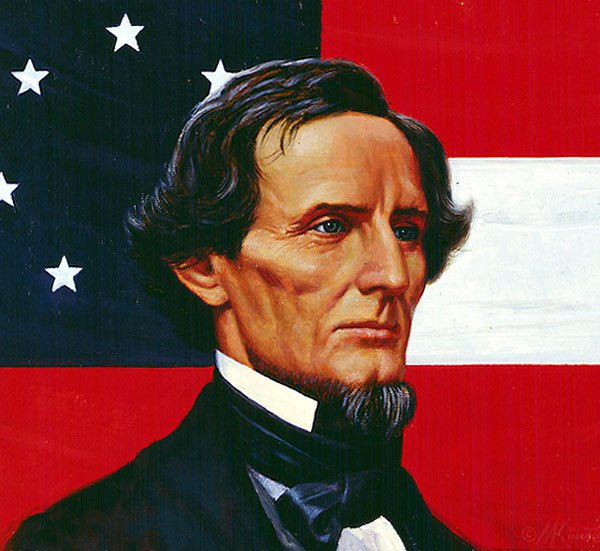
Mar 26
"[T]his little event, of France possessing herself of Louisiana, ... is the embryo of a tornado which will burst on the countries on both shores of the Atlantic and involve in it’s effects their highest destinies."
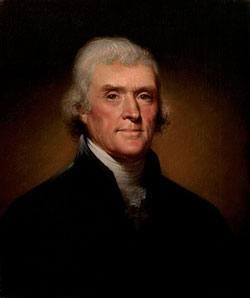
Mar 27
"An enormous fleet appeared this morning, larger than has been before witnessed from this point. Everything looks as if preparations were almost ready for the enemy to commence a forward movement. The monster force before this city cannot longer remain in idleness. Persons well acquainted with the country bordering Yazoo Pass and the Coldwater say if the enemy succeed in getting their gunboats into the Coldwater they will never get out, and that an army of 1,000 could hold at bay and destroy an invading force of 50,000 in that country."

Mar 28
"We arrived at the arroyo of San Joseph Cupertino (now Stevens Creek), which is useful only for travelers. Here we halted for the night, having come eight leagues in seven and a half hours. From this place we have seen at our right the estuary which runs from the port of San Francisco."

Mar 29
"All trembling, I reached the Falls of Niagara, and oh, what a scene! My blood shudders still, although I am not a coward, at the grandeur of the Creator's power; and I gazed motionless on this new display of the irresistible force of one of His elements."
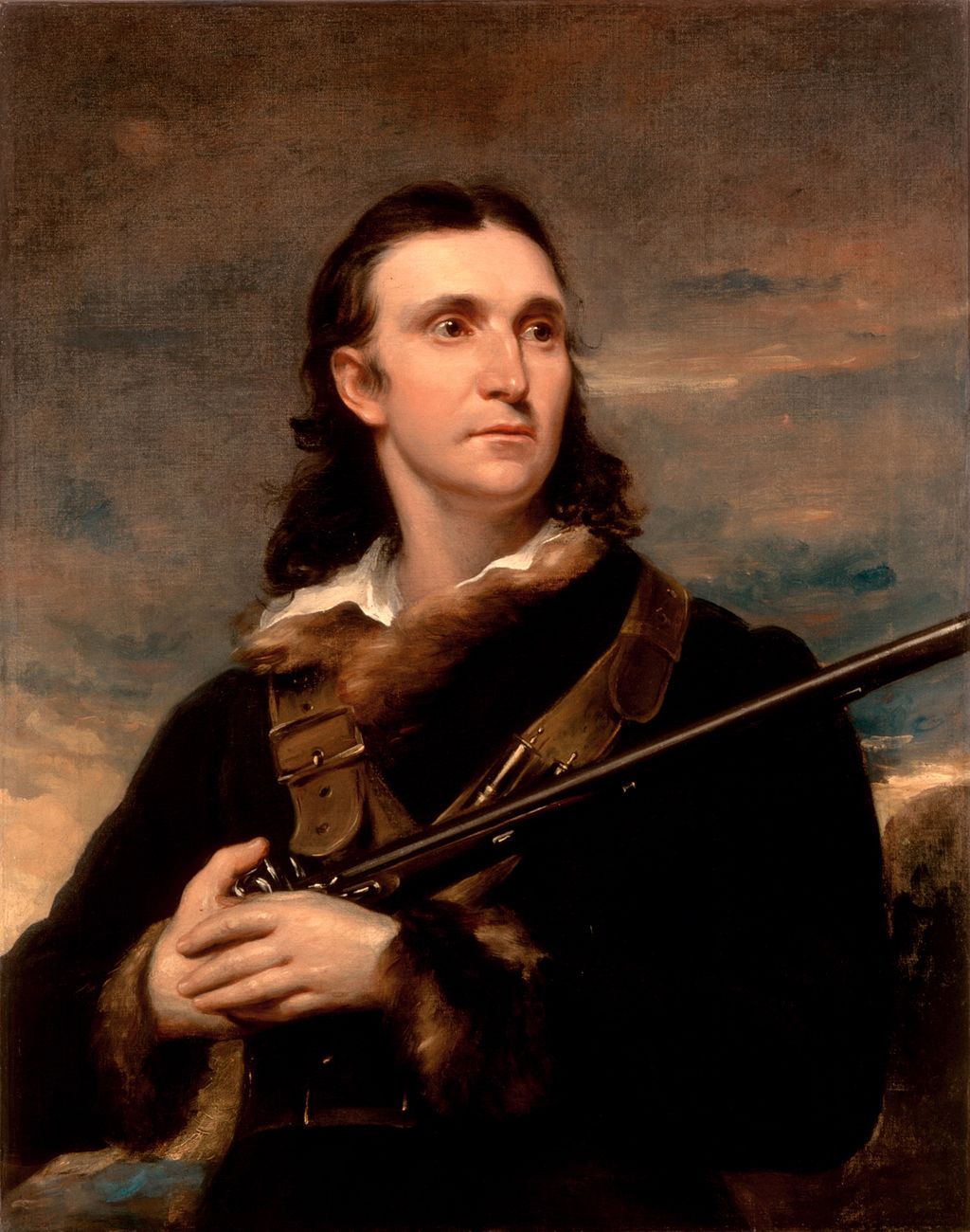
Mar 01
1796 – The Jay Treaty between the United States and Great Britain comes into force, facilitating ten years of peaceful trade between the two nations.
1864 – American Civil War: Kilpatrick-Dahlgren Raid fails. His plans to free 15,000 Union soldiers being held near Richmond, Virginia are thwarted.
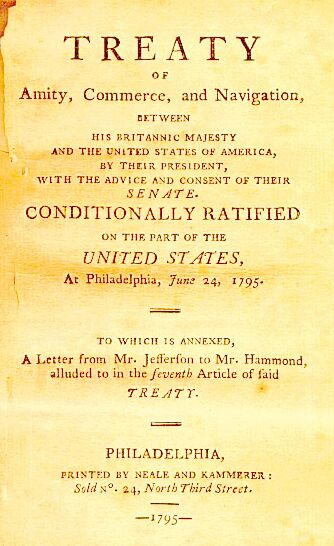
Mar 30
"In spite of everything I shall rise again: I will take up my pencil, which I have forsaken in my great discouragement, and I will go on with my drawing."
Image by Van Gough: Sketch on cream, machine-made wove paper; pencil, pen, ink.
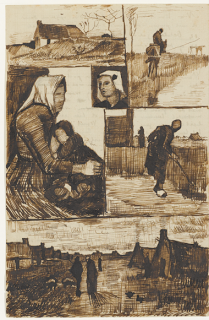
Mar 31
"We have only the name of masters, and rather than give up this, which would completely subject us to the despotism of the petticoat, I hope General Washington and all our brave heroes would fight."





